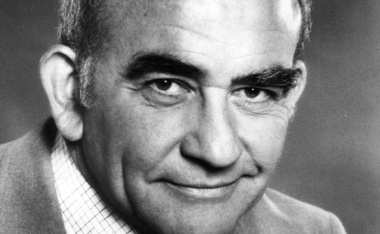The views expressed in our content reflect individual perspectives and do not represent the authoritative views of the Baha'i Faith.
In my mid-30s, worried about the world and looking for more meaning in life, I embarked on a search for a place where I could help humanity. If you look, I learned, it’s easy to find opportunities to serve.
Simply, folks everywhere need help. In all kinds of places, and among all kinds of people, that crying need never ceases.
As a Baha’i, I realized, I wanted to do something tangible to be of service to my fellow human beings. I had come to realize that my commitment to the Baha’i Faith and its spiritual principles meant not just professing an inner belief in love, justice, peace, and unity, but transforming those beliefs into action.
RELATED: How Spiritual Knowledge Can Lead to Real-World Action
These two passages from the Baha’i teachings – the first paragraph from a speech Abdu’l-Baha gave in New York in 1912, and the second two paragraphs from a talk he gave in Paris – challenged me to act:
The disease which afflicts the body politic is lack of love and absence of altruism. … Love and unity are the needs of the body politic today. Without these there can be no progress or prosperity attained. Therefore, the friends of God must adhere to the power which will create this love and unity in the hearts of the sons of men.
Let your actions cry aloud to the world that you are indeed Baha’is, for it is actions that speak to the world and are the cause of the progress of humanity. …
Without action nothing in the material world can be accomplished, neither can words unaided advance a man in the spiritual Kingdom. It is not through lip-service only that the elect of God have attained to holiness, but by patient lives of active service they have brought light into the world.
I instinctively knew that I wanted to volunteer and actively serve in places where my heart and soul seemed at home. I’d been poor, so I wanted to help those in poverty. I’d been to war, so I wanted to help its innocent victims.
After some search and some research, I found a non-profit organization called Medical Aid for El Salvador (MAES), and I called their office in Los Angeles to volunteer.
At the time, the United States was fighting various insurgencies in Central America, sending weapons, money, and military advisors to El Salvador’s ruling junta, and also attempting to overthrow the popularly-elected Sandinista government in nearby Nicaragua. Controversially, the United States supported the Salvadoran government’s effort to defeat the rebels, who were attempting to overthrow the country’s ruling oligarchy. As a Baha’i, I had no desire to align myself with any faction or involve myself in the politics of that war – I only wanted to do what I could to help the poor souls who suffered as a result of the fighting.
Medical Aid for El Salvador’s neutral, non-political mission involved exactly that goal – the agency tried to meet the medical needs of both combatants and civilians, without regard to what side they were on or what their political leanings might be. Mostly, MAES worked to fit landmine victims, usually amputees, with sophisticated high-tech artificial limbs made in the United States. I learned, when I first saw an impoverished amputee farmer get a leg, that it gave a whole new life to those who had lost all hope. Inspired by what they did, I became a supporter and a volunteer, making several trips to Central America as a result.
I loved the work, which gave me a great deal of satisfaction and joy, but I hadn’t counted on another obvious benefit – meeting and getting to know the selfless souls who sacrificed a great deal to serve others.
In the course of my volunteer work with the organization, which lasted for many years until the war ended, I met a man who would become a dear friend, the actor, activist, and then president of the Screen Actors Guild, Ed Asner. Ed was one of the co-founders of Medical Aid for El Salvador, the president of its board of directors, and a man deeply-committed to social change and altruistic humanitarian service.
Known internationally as one of the stars of The Mary Tyler Moore Show, and later the star of the spinoff TV series Lou Grant, his acting career had given him fame and wealth – but his humanitarian commitments would lead to a major upheaval in his life, and have a devastating impact on his career. Ed wrote “My presidency of the Screen Actors Guild, coupled at the same time with being one of the founding members of Medical Aid for El Salvador, created a conflict which eventually led to the cancellation of the Lou Grant show.”
But before all that, when I first met Ed at a MAES meeting, he welcomed me warmly as a new volunteer. Every time I saw him he sincerely asked me how and what I was doing. We became friends slowly and naturally, without any of the Hollywood fake friendliness I encountered elsewhere. He told me about his early life – as a steel mill apprentice, an automobile factory worker, an aspiring journalist, and a starving actor – and I told him about mine. I came to know Ed as a genuine, kind, compassionate human being. We connected.
Over a meal one day he told me about his upbringing in an Orthodox Jewish family, and I told him about mine as a Lutheran. “You still believe in it?” he asked. “I’m a Baha’i now,” I said, “and Baha’is believe in the oneness of all religions.”
“There you go!” Ed said, his face lighting up. “Okay, give me one line from the Baha’i scriptures.”
I said “Here’s a quote I love from Baha’u’llah” – “Be anxiously concerned with the needs of the age ye live in, and center your deliberations on its exigencies and requirements.”
“Hmm. Guess I’m a Baha’i, then,” he said.

A few years later, after MAES had transformed a donated American ambulance into a free Salvadoran mobile dental clinic, Ed and I held a press conference to announce the effort in the Medical Aid for El Salvador parking lot on Wilshire Boulevard. At that point, Ed had recently lost his television role as Lou Grant, when the network cancelled the show because of his outspoken activism – and because the president of the United States had publicly criticized him. He told me that film and TV directors were afraid to hire him. As we stood there in the sun before the news conference began, both of us waiting to start speaking to the many assembled cameras and reporters, I asked him “Are you worried that doing this will cost you more acting gigs?”
Ed smiled and said “If I worried about that, Dave, I’d be paralyzed. I could never take a stand. No, I don’t worry about how others react – I only worry about the state of my soul.”
What Ed said immediately reminded me of this passage from the Baha’i writings:
Blessed is the soul which, at the hour of its separation from the body, is sanctified from the vain imaginings of the peoples of the world. Such a soul liveth and moveth in accordance with the Will of its Creator, and entereth the all-highest Paradise.
RELATED: 5 Ways to Prepare for the Next World
My friend Ed passed away at the age of 91 in August of 2021. He devoted his life to his craft as an acclaimed actor, and more importantly, he acted to address the needs of humanity. Ed had, in a phrase my grandfather taught me as a child, “the courage of his convictions.” Regardless of the consequences, Ed said and did what he thought was right. In that way his conscience, guided by his love for humanity, became a beacon for many others.
I learned a great deal from Ed, and I miss him. I miss his deep compassion for the downtrodden, his anxious concern for the needs of his age, and his brave, generous spirit of love and kindness. Happy trails, Ed. May your soul plunge into the ocean of light in the sea of mysteries.
















Comments
Sign in or create an account
Continue with Googleor